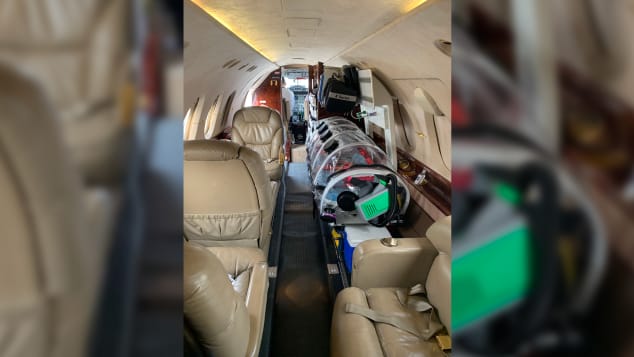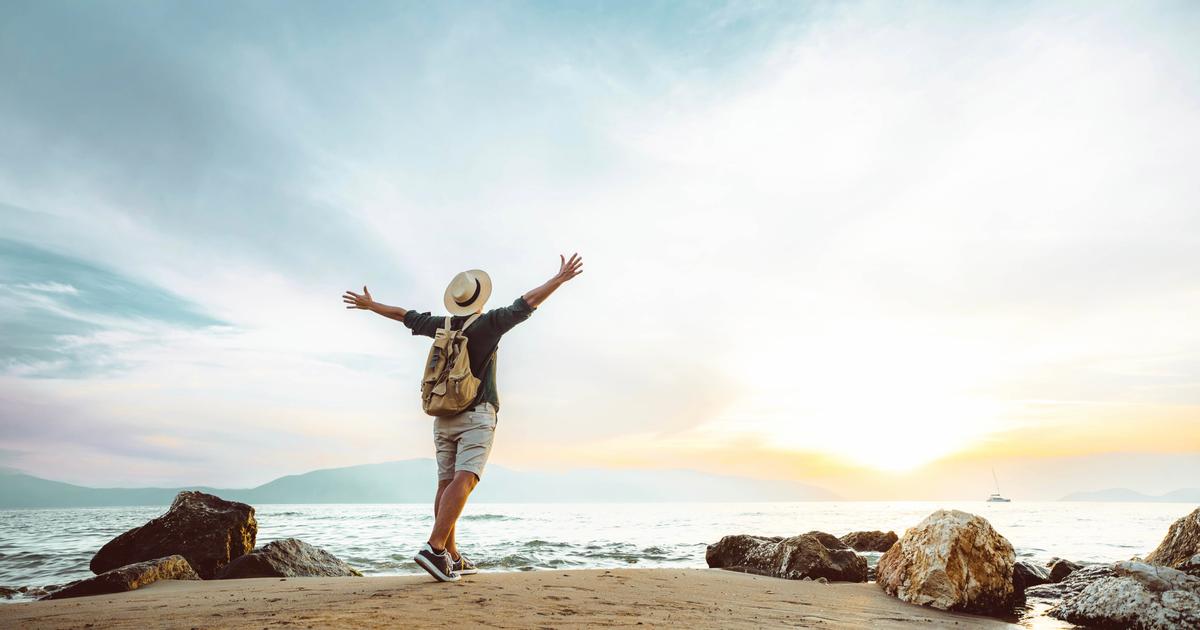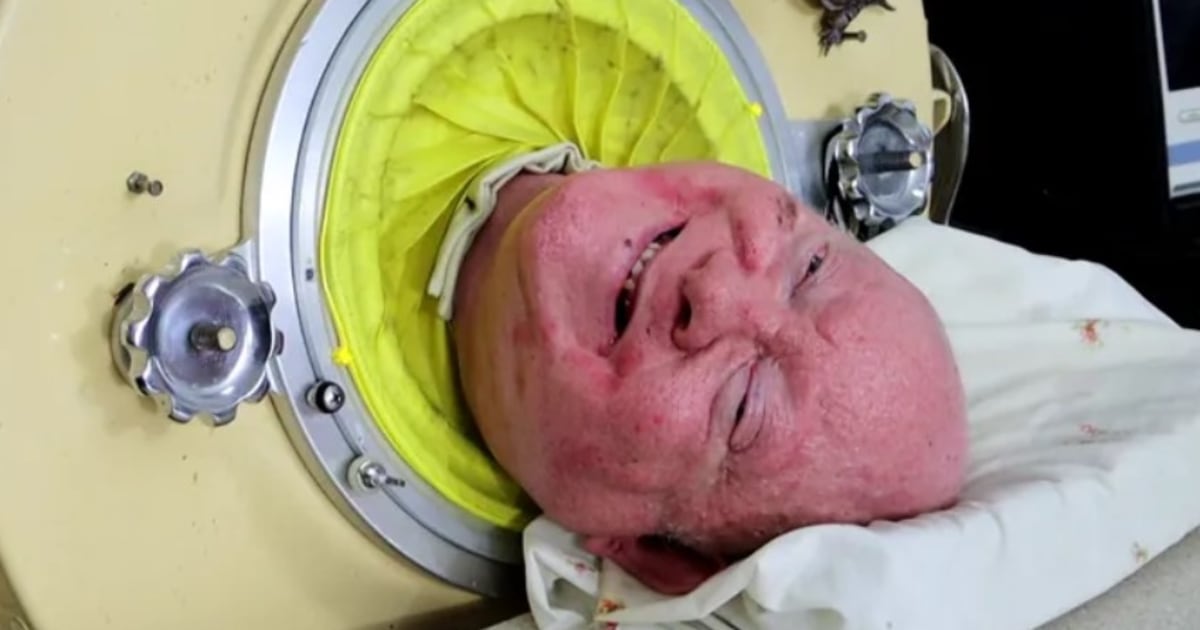This type of tourism saves coral reefs in Colombia 0:57
(CNN) -
Without a doubt, going on vacation has become much more complicated due to covid-19.
After more than a year of the pandemic, border restrictions continue to change constantly as new variants emerge, while PCR and antigen testing have become an integral part of travel.
Many countries require travelers to test negative for COVID upon entry, regardless of their vaccination status, and in some cases follow-up tests are performed, while some destinations, including the US, require that travelers people test negative before their return trip.
Tourism in Latin America: these are the best destinations of 2021
But what happens if the result is positive after having reached a new destination?
This is a situation in which several travelers have been found in the last year.
In August, South Carolina couple April DeMuth and Warren Watson (pictured above) were preparing to return to the United States after a two-week trip to Greece when a positive COVID-19 test result thwarted their plans. .
advertising
"We did the test in the morning," DeMuth explains.
"So we were at the airport, the agent stopped us to check our luggage and we checked the test results [on our phones]. That's when he [Watson] said it."
Just hours before boarding their flight back to the United States, they discovered that Watson had tested positive for covid-19.
As Greece allows fully vaccinated travelers to enter without restrictions, the couple, who are vaccinated, did not have to undergo any PCR testing before the trip.
However, they had to present negative COVID-19 test results in order to fly home.
Positive on arrival
Shortly after receiving the results, DeMuth and Watson received a call from local authorities and their transfer to a quarantine hotel provided by the Greek government was quickly arranged.
Although most travel insurance covers quarantine-related expenses, the couple had not purchased insurance for their vacation.
"We were very lucky that Greece has quarantine hotels paid for by the government," says Watson, who had suffered from some mild covid symptoms in the days before receiving the positive test result.
"They gave us three meals a day. They treated us very well and it cost us nothing. I know that in other countries it is quite expensive."
Fortunately, Watson's symptoms remained mild while in quarantine (DeMuth never tested positive) and he received a negative result after performing the next PCR test.
The couple were able to return home seven days later without incurring any extra expenses.
"Now I would never travel without [insurance]," says DeMuth.
"We were lucky to be in a country that was very kind to what they do, but we would never want to depend on that."
Uruguay: "From November you can enter with a negative PCR and without quarantine"
Without a doubt, things could have been very different if they had chosen to spend the holidays in another destination.
For example, visitors to Italy have to prepay their own quarantine expenses if they test positive upon arrival.
"Travel insurance with quarantine coverage for covid-19 is designed to help cover accommodation and living expenses that you may incur if you test positive for covid on your vacation," Narendra Khatri, president and CEO, explains to CNN Travel from Insubuy, which offers international travel health insurance from several US-based companies.
"The coverage depends entirely on the policy you choose. Most of the plans offer a minimum of US $ 2,000 for quarantine, lodging and living expenses, and the interruption of the trip up to 100% of the cost of the trip."
"If the traveler chooses, many policies offer the option of purchasing additional coverage of up to US $ 7,000 to cover quarantine expenses, and a trip interruption benefit of up to 150% of the cost of the trip."
Although Watson did not need any medical treatment during his time in Greece and made a full recovery, others have not been so lucky.
Expensive experience
Covac Global transports travelers who have tested positive for covid-19 during their vacations by air ambulance.
Courtesy of Covac Global
In 2020, Gloria and José Arellano, from California, tested positive for covid-19 after traveling to Mexico on vacation.
Although Gloria recovered, her husband's condition worsened and he was admitted to a local hospital.
Unfortunately, José's health continued to deteriorate and he was airlifted by air ambulance to the La Jolla Naval Medical Center, where he died of a lung infection on December 28.
The medical and transportation expenses incurred during the process were overwhelming, and the family set up a GoFundMe account to help with payments, as their insurance did not cover the full amount.
Although cases like this are not necessarily the most common, Khatri advises travelers that, when choosing a travel insurance policy, take into account the costs that would occur in the worst case.
"Will the US $ 2,000 cover accommodation expenses during the entire quarantine in the destination country?" He asks.
"Is a policy of up to $ 50,000 going to be enough if you need a helicopter ride from an island to the nearest emergency room?"
"If there is a chance that this is not the case, you had better buy a policy that can offer more coverage. It is much better to spend a little more now on insurance than to have to face huge medical or hotel bills in a distant destination."
How to fly safely one year after the covid-19 pandemic
Destinations such as the Bahamas and Costa Rica have even stipulated that all visitors must have specific coverage related to the coronavirus as an entry requirement.
Khatri also stresses that travelers should ensure that their insurance provides coverage for their entire trip.
"If you test positive for covid or have some other medical problem on Thursday while flying, but your coverage does not start until you land on Friday, your insurance will not cover it," he explains.
"It would be considered a pre-existing illness. Take out insurance that covers you from the beginning to the end of the trip."
But while travel insurance can help ensure that travelers who test positive for COVID avoid paying additional costs for quarantine or medical treatment, most have no choice but to stay where they are until they can test negative for COVID.
Medical evacuation
Covac Global has evacuated travelers from destinations such as Uganda, the Bahamas, and the Maldives.
Courtesy of Covac Global
However, Covac Global, a medical evacuation company launched in August 2020, offers a special program that allows travelers with a positive result while abroad to be transported home via a certified ambulance with medical personnel, a of the "extremely limited" circumstances in which a traveler suffering from covid is allowed to return to the United States.
The service, which is described as "the first and only fully insured affiliate program", is available to members who have received a positive COVID test result after reaching their destination and have at least one symptom declared by them. themselves.
Membership fees start at US $ 675 for 15 days of coverage, while annual membership costs US $ 2,500.
Its founder, Ross Thompson, claims that the company is experiencing a significant increase in the number of affiliates month by month, and that the average age of its members is increasingly younger, with more professionals in their 40s choosing to enroll in the program. .
The majority of Covac Global evacuations are from hotel to home, and the company has been called to places like Uganda, the Bahamas and the Maldives to retrieve travelers.
"We have picked people up in speedboats from their overwater villas in the Maldives and from their hotel rooms on islands off the coast of Central America with a helicopter," says Thompson.
"So we'll go find you wherever you are. If you can get there, we can get there. And then we'll take you home. Very few cases require us to take you to a hospital."
But transporting a COVID-positive patient is not an easy task, especially if they are in a remote place or in a country where there is civil unrest.
"Not long ago we did an evacuation from Ethiopia," says Thompson.
"We had to get the permits in coordination with the Ethiopian government."
"In Ethiopia there was a significant amount of civil unrest [at the time], so we had to involve our security teams to ensure that everyone entered the country safely."
When to get tested
Medjet introduced the provision of medical transportation for members hospitalized with COVID-19.
Courtesy of Medjet
John Gobbels, director of operations for medical evacuation company Medjet, says the possibility of testing positive for COVID-19 and requiring hospitalization while in a destination where there are no beds available in intensive care units it is one of the greatest concerns of its members, along with being "trapped" in a hospital miles away from friends and family.
Medjet added medical air transport for travelers hospitalized by COVID-19 to its membership in October 2020.
"We add that benefit at the risk of our costs," explains Gobbels.
"Transportation for the mere fact of testing positive is not a benefit of the membership, but can be arranged at a cost to the member."
But what can travelers do to be better prepared for the possibility of testing positive for COVID while on vacation?
Gobbels advises travelers to bring "approved" brand covid test kits so they can get tested on time.
The US will invest US $ 1 billion in covid-19 tests at home
"Don't wait for the '72 hour notice 'window to get tested," he says.
"You will have to meet that requirement, but knowing in advance that you may fail will give you more time to make a plan B."
"And since there are sometimes false positives, if you test positive, immediately get another test."
Unfortunately, with COVID cases still high in various parts of the world, the possibility of testing positive during the holidays is a reality that travelers will likely continue to face for some time to come.
"I think it's something we're going to have to live with now," admits Thompson.
"Just like after 9/11, people added security evacuation to their travel insurance or travel memberships, because that's the world we live in now."
"I think covid-19 evacuation coverage is going to be common on travel."
Covid-19









